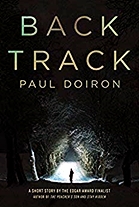REVIEWED BY DAVID VINEYARD:
RUSSELL THORNDYKE – The Amazing Quest of Doctor Syn. Doctor Syn #5. Rich & Cowan, UK, hardcover, 1938. Arrow, UK, paperback, 1964. Black Curtain Press, US, paperback, 2013.

…there was no traveller crossing the Marsh that night, for it had been whispered behind the barred doors of every isolated cottage that the sinister Scarecrow and his Night-riders were out, and it was not healthy for a lone wayfarer to fall in with that crew, desperate men all, with the shadow of the gallows ever before them.
Still sends a shiver down the spine on a cold wet night, doesn’t it? Russell Thorndyke was a contemporary of John Buchan, and like him an admirer of Robert Louis Stevenson, and his tales of the honorable pirate Captain Clegg, who with his band of men sought protection on Romney Marsh where the Captain, in the guise of meek and kindly 18th Century vicar Doctor Christopher Syn, supervises the going market in smuggling along England’s wild Western coastline, have been around for decades even fairly recently on BBC radio.
The British have always liked their gentlemen heroes with a bit of larceny in their heart, from Robin Hood to Raffles and the Saint. Doctor Syn is in that same cool-headed, roguish, ruthless, and charming company. Captain Clegg never murdered, but he did execute, as does his second incarnation.

Doctor Syn had a lively career for a quiet vicar. He featured in seven popular novels by Thorndyke, then in Dr. Syn (1936), a feature film starring George Arliss (to whom this book is dedicated) as both he and his ragged and tattered alter ego, the Scarecrow, on his steed Gehenna). That was followed by radio adaptations of the books, a revival by Hammer (Night Creatures, 1962), films with Peter Cushing (as the Rev. Dr. Blyss) in the role of the Scarecrow, and most famously on television on The Wonderful World of Disney, played by Patrick McGoohan, where Doctor Syn protected his flock from the vicious excise man and the British Navy’s Press gangs while making a good profit on smuggled French brandy and foiling the wreckers who preyed on unsuspecting seamen in The Scarecrow of Romney Marsh.
The Amazing Quest of Doctor Syn is the fifth novel in the seven novel series, and as seen above, opens with a typically atmospheric introduction to the Scarecrow and his men, informing us “For years he had terrorized the level lands reclaimed from the sea, which stretch from Sandgate to Sussex border.†With agents as far away as London the good Doctor has an impressive spy service protecting him from every possible avenue.
Of course nothing is perfect, as the good Doctor is about to find out.

Only two men know the Scarecrow’s secret, Jimmy Bone the Highwayman who sometimes rides in the Doctor’s place so he can be in two places at once, and the rat-like but stalwart Mipps, sexton of the Doctor’s Dymchurch-under-the-Wall parish, where he also rides as the Scarecrow’s second-in-command, Hellspite, so the Scarecrow’s secrets are safe, but there are other threats to a man with the Doctor’s history.
A mysterious Welshman has arrived in Dymchurch with a message for Doctor Syn. The Doctor and the Welshman are the last survivors of a Tontine (that favorite device of Victorian melodrama), joint inheritors of a vast fortune, but nothing is ever that simple in the good vicar’s world. The Welshman has been sent by his landlord in Wales, Tarroc Dolgenny (“He has made his name in North Wales, and I may add he will make it even bigger in hell.â€), a smuggler who plans to murder Doctor Syn, see the fortune paid to the Welshman, and then kill him for the money by marrying the pretty niece who would inherit the fortune, then once the money is in his hands murder the girl as well.
But Tarroc Dolgenny “A dangerous man.†hasn’t counted on crossing swords with the infamous Captain Clegg, much less the spectre of the Marshes, so Doctor Syn is off to Wales to pit himself against a villain of the first order, informing the Welsh lawyer Jones, “I might be dangerous too. In fact, I rather think I shall be if I ever meet this man.â€

First off, a bit of business at home takes precedent, rescuing Jimmy Bone from the gallows and dealing out a bit of justice to a cruel and corrupt lawman, but then the Vicar of Dmychurch is off and the adventure proper is on where Dolgenny proves a greater threat than expected, even suspecting the truth about Syn and the Scarecrow.
“I mean the parson, the Very Reverend the Dean of Peculiars, such and apt name too, the tall, the elegant, and accomplished Doctor Syn, who could play the parish priest by day, and ride the Marsh at Night.â€
The virtues of the books are that they move quickly full of incident, and that Thorndyke has a fine hand for adventure, history, and atmosphere. No less a contemporary and admirer of adventure tales and historical fiction than John Buchan praised his exciting novels, which in addition have the virtue of coming in at under two hundred pages.

With Dolgenny a much more dangerous adversary than he thought, Doctor Syn is on his toes, outwitting the murderous brute, who would seem to have the upper hand, and bringing him to bay with quick wits and a quicker sword.
So out of the night and sea mists of the Marsh company, the Scarecrow will ride again on his firey horse, evading the excise man, terrorizing the ignorant, tormenting the rich, and seeing to it that the people of England can enjoy a good Spanish wine or French brandy without that silly taxation business. Not everyone can be the Scarlet Pimpernel and save people from the Terror, and after all, Sir Percy must have appreciated a nice excise-free cognac after rescuing all those noble Frenchmen and had the Scarecrow to thank for that.
